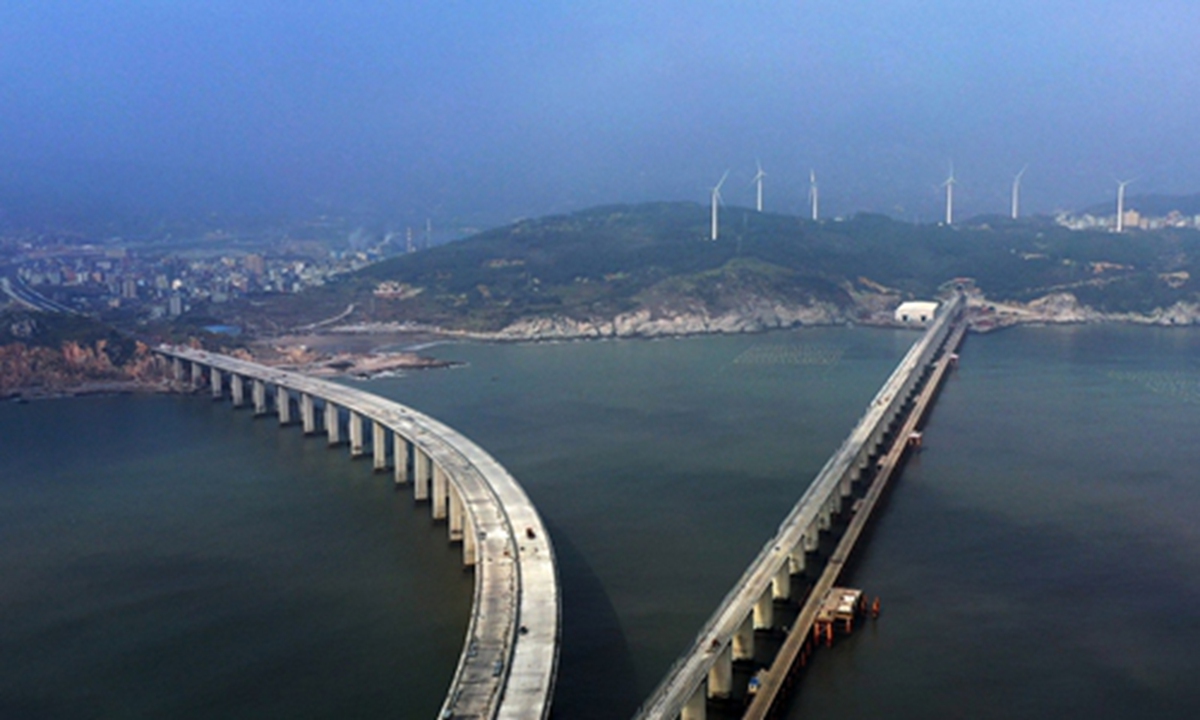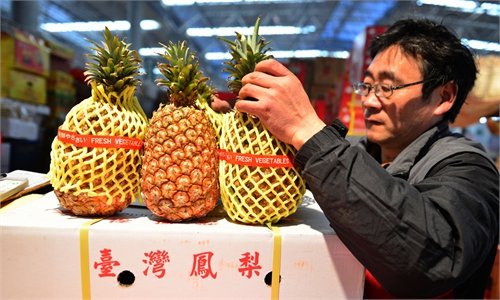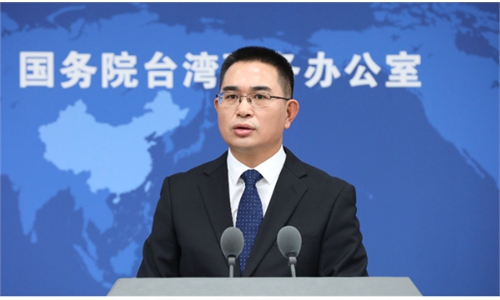
A view of the cross-Straits railroad bridge that links Fuzhou, capital of East China's Fujian Province, with Fujian's Pingtan county Photo: cnsphotos
While some forces may want to play up the decreased investment from the island of Taiwan into the Chinese mainland in order to undermine the mainland's economic appeal to the island, it does not change the fact that the mainland's economy continues to be an important support for Taiwan.It is not uncommon nowadays to see Western media outlets hyping the figures about Taiwan's investment. Statistics from Taiwan authorities showed that the Chinese mainland is no longer the most popular investment destination for Taiwan companies.
Investments from the island in the US and Germany in 2023 apparently exceeded those in the Chinese mainland, according to a recent article from the Chinese version of German media outlet Deutsche Welle.
In the first 11 months of 2023, Taiwan's investment in the mainland slumped 34 percent to $2.9 billion, accounting for just 12 percent of the island's total outbound direct investment, Taiwan data showed.
Statistically, there is no denying that the proportion of Taiwan's investment in the mainland, out of its total outbound investment, has recorded a considerable drop in recent years. According to a report from Nikkei Asia, in 2010, Taiwan's investment in the Chinese mainland reached its peak at 84 percent of the island's total. Even in 2022, the mainland still accounted for 34 percent of Taiwan's investment.
There are many reasons behind this development. For instance, the US has imposed sanctions and restrictions against the Chinese mainland to contain the latter's technological development and industry chains. Under US pressure, some Taiwan companies have had to adjust their investment strategies to avoid sanctions and supply chain disruptions. The US has also used various means to lure Taiwan investment into the US.
That said, it doesn't mean that the mainland market has lost its edge or appeal to businesses from the Taiwan island. According to the Taiwan Affairs Office of the State Council, in the first nine months of 2023, the number of investment projects by Taiwan businesses on the mainland rose 23.9 percent year-on-year, with utilized Taiwan investment up 7.5 percent on a year-on-year basis. Cross-Straits trade remained at a high level of about $200 billion over the same period.
This shows that despite the obstacles set by Taiwan's Democratic Progressive Party (DPP) authorities to obstruct cross-Straits exchanges and cooperation, Taiwan businesses are still optimistic and willing to invest, and their confidence in the mainland remains unchanged.
No matter how hard the DPP authorities try to use political reasons to "offset" the appeal of the mainland economy, they cannot deny that the trade surplus and return on investment from the mainland are important sources of nutrients for the island's economy. Historically, investment and trade between Taiwan businesses and the mainland have brought great benefits and contributions to the island's economy.
Taiwan's sluggish economic performance in 2023 was further proof that the mainland's economic advantages can't be easily replaced, and Taiwan cannot afford or benefit from weakening economic exchanges with the Chinese mainland.
Reducing or cutting off cross-Straits economic exchanges may be the goal of the DPP authorities. However, cross-Straits trade and industries are closely intertwined, meaning that weakening economic ties is detrimental not only to the wellbeing of people on both sides of the Straits, but also to the healthy development of industries on both sides.
The mainland has been making great efforts to create more and better conditions for cross-Straits economic and trade exchanges, a pragmatic move to offset the DPP's "decoupling" risk by strengthening cooperation.
For instance, not long ago, the central government issued a circular supporting East China's Fujian Province in building a demonstration area of integrated development across the Taiwan Straits, which is aimed at further expanding cross-Straits cooperation in terms of trade, science and technology, and industries.



